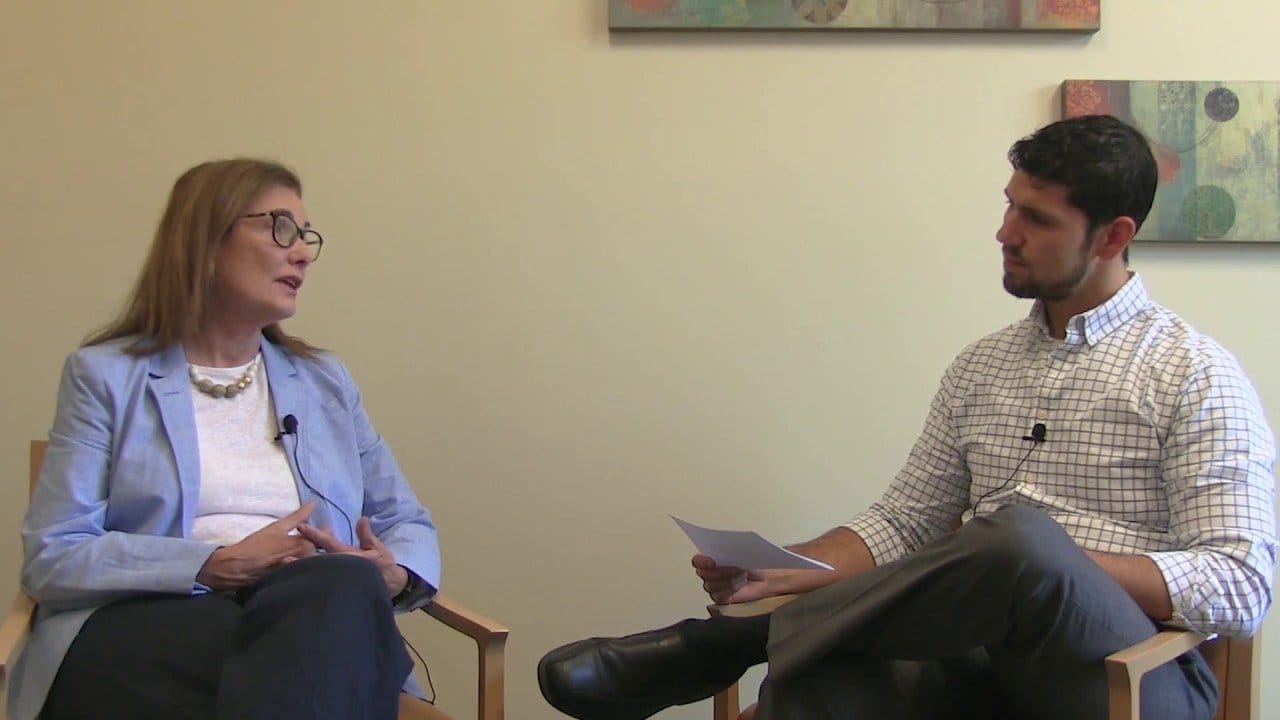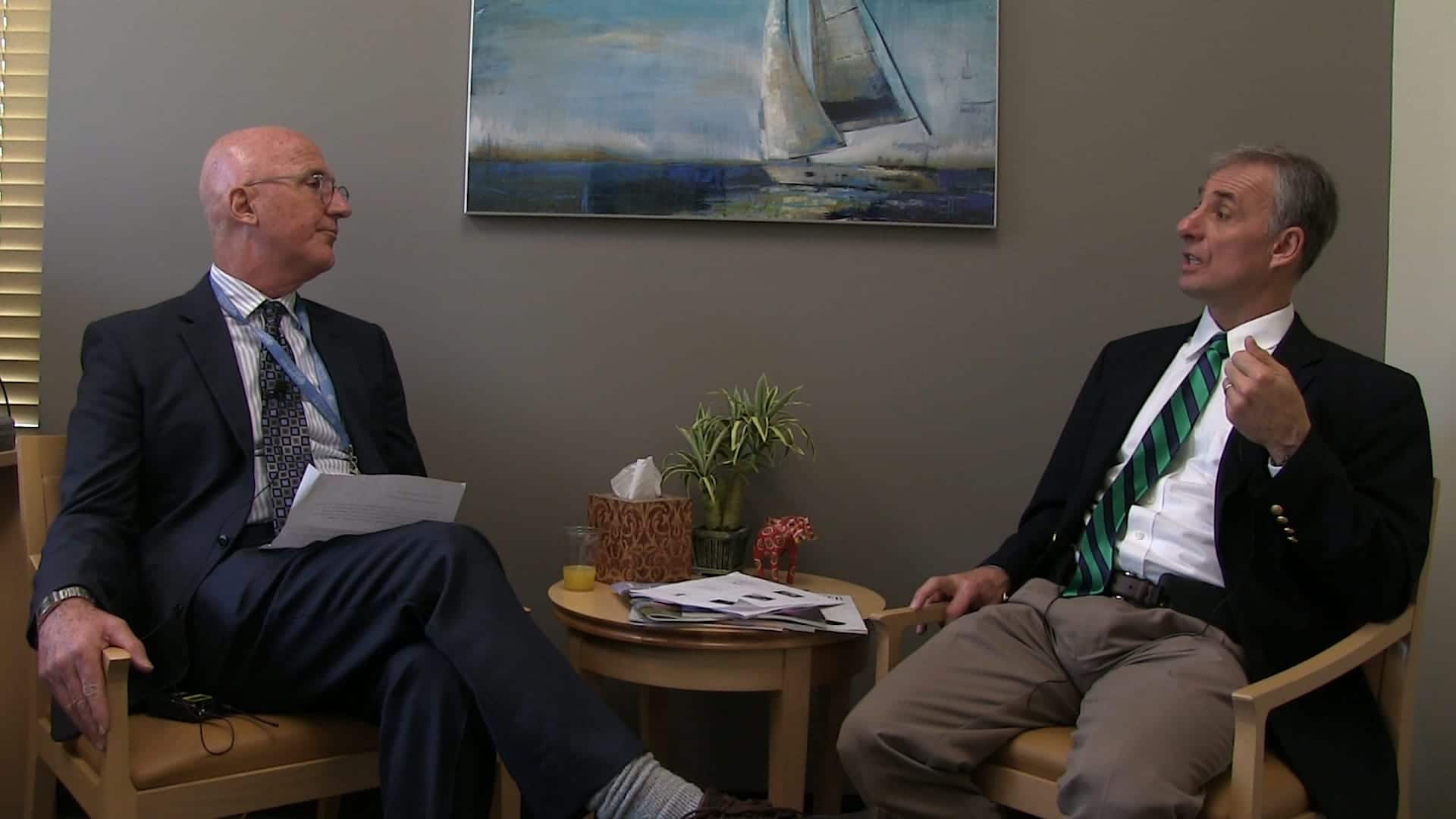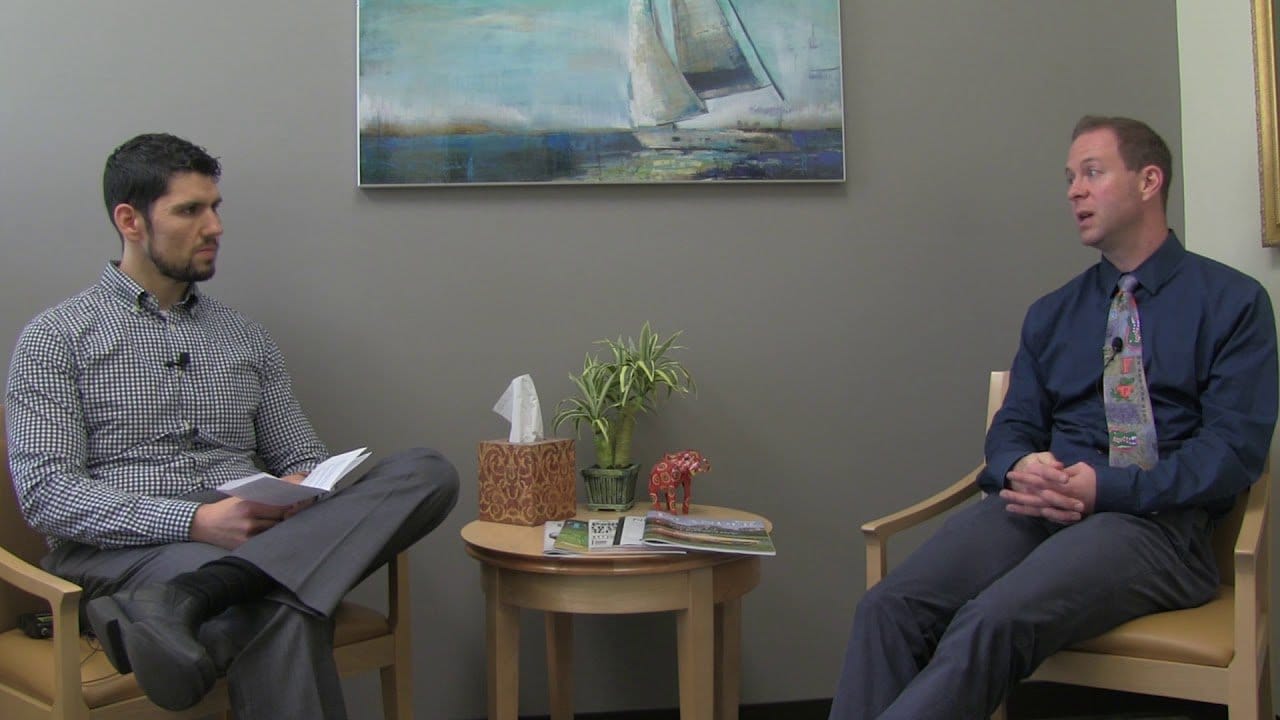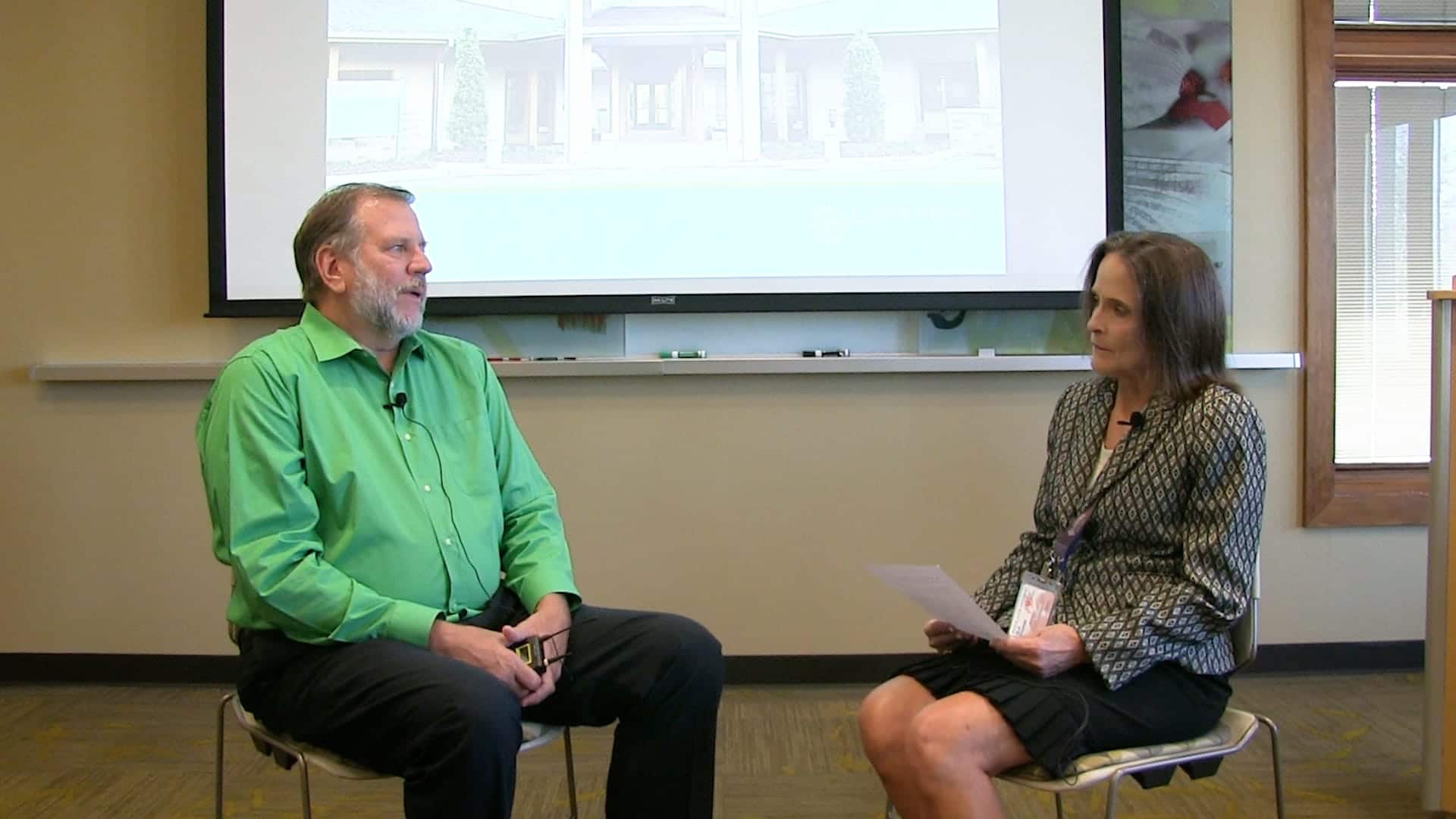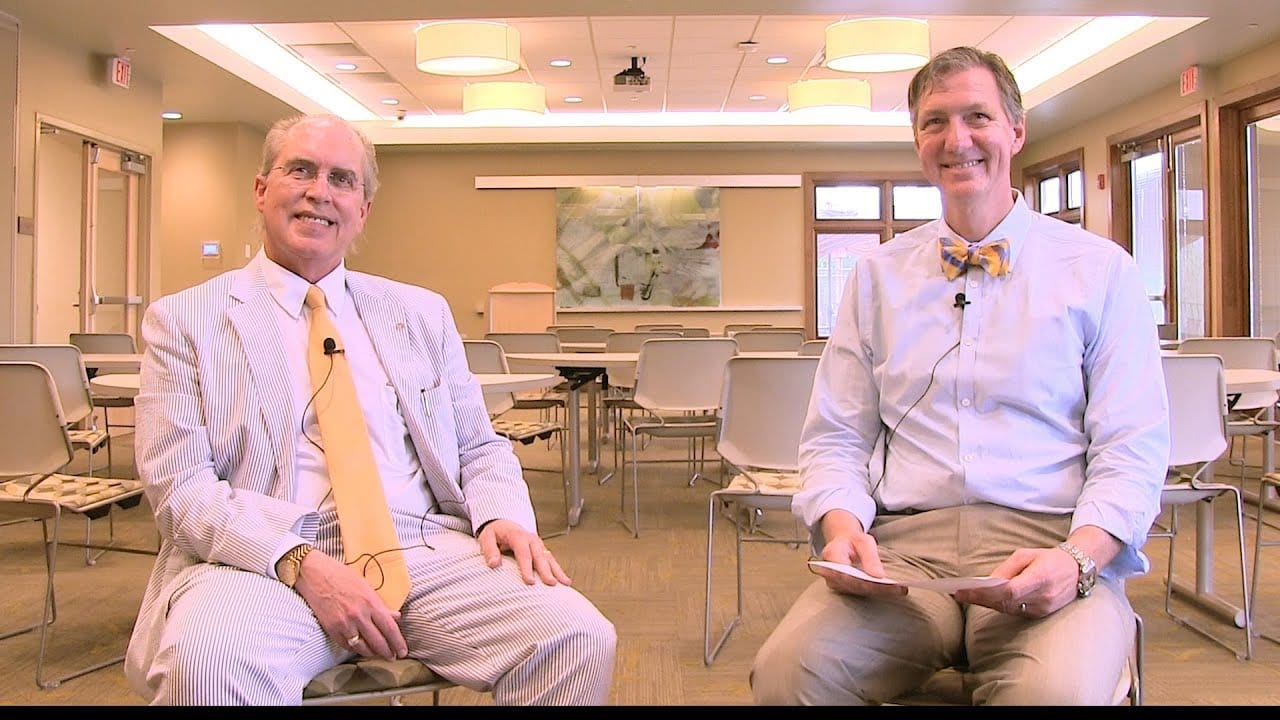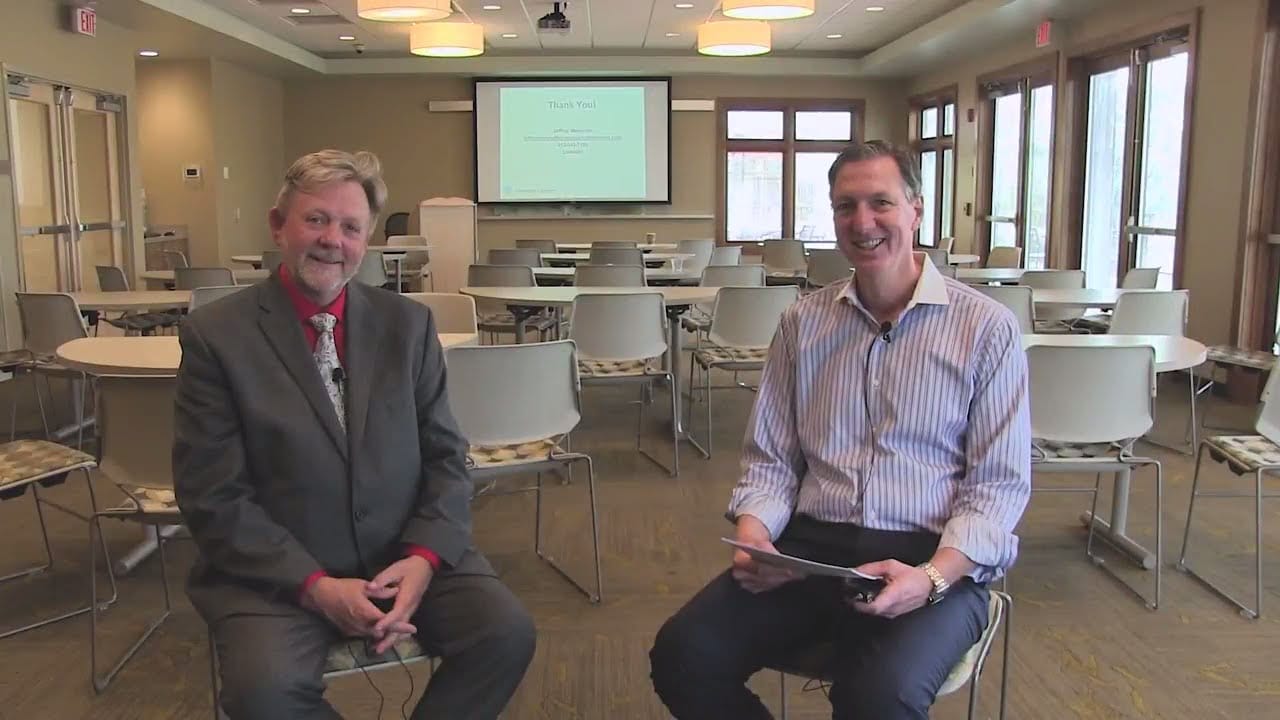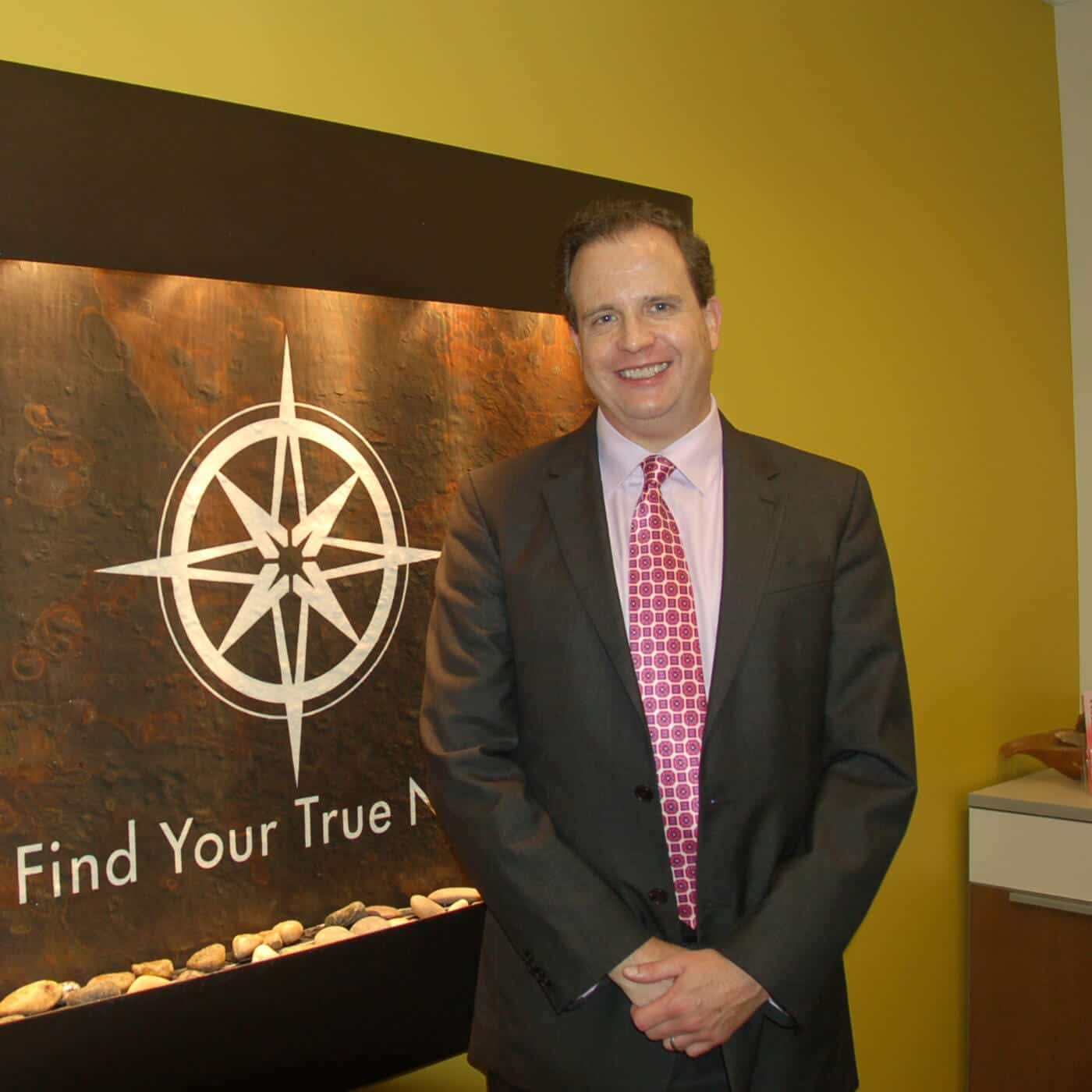

By: Lakeview Health
In this podcast, Dr. Michael Groat, Director of Adult Division at Menninger Clinic, talks about his presentation on addiction as a disorder of attachment. He also discusses his motivation for getting into this area of mental health and addiction as well as projects currently underway at Menninger.
Podcast Transcript
Gina Thorne: Hello everyone this is Gina Thorne with Lakeview Health and we’re pleased that you can join us today for the Lakeview Health Podcast Series. I’m joined today with Dr. Michael Groat who is the Director of Menninger’s Adult Division at Menninger Clinic in Houston, Texas. Welcome, Dr. Groat. Michael Groat: Thank you. Gina: It’s good to have you here. Dr. Groat, you’ve had the opportunity of working with us in the past, particularly around doing some lectures and presentations and so we’re really excited that you could join us today to talk about your presentation on addiction and attachment. Before we get started on talking a little about that, could you tell us a little bit about the Menninger Clinic and how it started? Michael: Sure. The Menninger Clinic started 90 years ago in Topeka, Kansas and the Menninger family had a vision for a different kind of medicine to be practiced. What they envisioned was a place that really would take care of the whole person and wouldn’t be operating from a place of ‘we just want to reduce symptoms’ such as depression, or urges to drink, or use drugs, but really take care of the whole person and get to know them spiritually, and to look at what would foster wellness in that person’s life. So they founded a therapeutic community where people could have a sense of belonging, and so I chose to work at the Menninger Clinic because that resonates so well with how I like to think about the work. Being part of a community, a community of caring, a community where we’re attending to patients and a variety of needs that they have, from their physical needs to their emotional, and social, and spiritual needs, and doing that over a sustained period of time. I think the things that make Menninger unique are the emphasis on our therapeutic community as a hospital, our complicated and sophisticated treatment teams, and the amount of time we get to work with people which allows us to form in-depth relationships. Gina: Well you certainly have the longevity on your side that speaks to the reputation of Menninger, and it’s wonderful that, I know that we and other treatment programs around the country have utilized the resources at Menninger, particularly for those folks with significant mental health disorders. You’re currently the Director of Menninger’s Adult Division. Obviously your background involves working with psychodynamic, psychotherapy, and personality assessment, and of course you mentioned therapeutic communities. What motivated you to get into this area of mental health and addiction? Michael: It actually goes back several years when I was working in higher education. I worked with college students in a university setting and residential environment when I had to work with students who presented to me, problems with drinking too much, problems with relationships, problems with depression, and problems with eating disorders. And what occurred to me was I didn’t have the training at that time to really know how to understand and work with these difficulties, and so I pursued training and learned particularly to enjoy the idea of working in a longer-term hospital and there are very few longer-term hospitals in the United States today. Menninger happens to be one of those, and so for me it’s a nice blend and it builds on my background, working in a residential environment. It’s like working in a college setting, and now that I work in a residential environment in this clinic where people stay with us for a while, we have a wellness center, we have a chapel, the campus itself looks a bit like a college campus with all these buildings spread around, walking trails etc., so it provides an environment of care that to me, the focus is on learning and healing and it’s something that I am excited to be a part of and have enjoyed being a part of for these last seven years. Gina: Well, I think that also what you bring to the table, particularly with Menninger’s resources, is the academic side as well, and the research side, which is really powerful. Michael: Yeah. So our alliance and affiliation with the Baylor College of Medicine has allowed us to do a wider range of research and scholarship than we had previously available to us, particularly in the area of neuroscience. And we have right now what’s called the “Mind MB Project” which is a way of trying to look at how people with known psychiatric illnesses that we’ve diagnosed through a whole series of structured interviews, how those diagnoses map onto their genetic profile and a series of brain images that we take of them. It’s a voluntary study that a number of our patients are involved in and so we are looking forward to looking at those links in the years ahead and we’ve had some interesting findings already just around how people with addictions in particular have some differences in what is called the “habenula” which is the area of the brain associated with learning, particularly learning when we have some kind of negative consequence. You know, can we learn for example, from a hangover that maybe we drank too much and we shouldn’t do that again. And what we have seen so far with folks with pretty severe addiction issues is that they don’t seem to be learning as quickly or that their learning seems to be impaired. Gina: That’s interesting and probably not terribly surprising when there is such a repetitive behavior behind it. So you joined us today at Lakeview to talk about addiction as a disorder of attachment. I know that you spent a good two and a half hours with our group talking about that so I’m a little curious, if you could just spend maybe 60 seconds or so just telling us a little bit about that topic. Michael: Sure. So the attachment inform view in relationship to addictions has to do with the fact that, broadly speaking, all of us human beings, throughout our lifespan, we need others to help us regulate ourselves. So it starts early in life with the mom who is there helping regulate the temperature and the nourishment for that child and then that just kind of builds and continues through the lifespan that we humans need each other to help us deal with the stresses and strains and the traumas of life. And so what can end up happening is that sometimes we may turn to substances as a way of dealing with stress and managing difficulty, instead of other people. That can actually interfere with and erode our needs for attachment to other people. So what I looked at today was how we might understand that process and really look at restoring more secure attachment and connection because we know that the security of attachment and connection and being able to turn to someone that we really trust and feel like has their back and is there for us in distress, that is really the most efficient way we humans have of regulating stress. And what’s interesting is if you compared that to yoga and mindfulness meditation and exercise, which are all very helpful, the security of our attachment to other people that we can turn to for help and distress is by far the most stress relieving, the most protective, so that’s why I emphasize it and that’s what the research shows and we can see it neurobiologically that the stress arousal systems are the lowest when we’re facing stress situations and we have someone there at our side, and particularly if we could just feel their support. So I think this kind of fits with our intuitive sense and what we’re hearing in the literature on long-term chronic illnesses, that the social support piece is really just so important. Gina: It really is. Just thinking about that in all aspects of life. That social support is so necessary. Michael: So I think there’s a lot of inherent wisdom to things like AA because AA really looks at fostering the connection to other people and moving out of isolation. So I think that there’s a real convergence there. Gina: Strength, hope, and experience, right? So this is your first visit to Lakeview here in Jacksonville and I’m just curious what your thoughts and impressions are. Michael: Well, some of my initial thoughts are that I’ve been impressed by the stance of the leadership team. Starting with you and others that I’ve talked with, who really think about, “how do we provide a caring environment and serve the needs of our staff?” and I love that because it resonates so well with the attachment inform perspective in that the staff really know that their managers and the other staff around them have their back and are there for them and they can really trust and rely on those others. It actually makes going into a room with the client easier because I don’t have to be worried about someone to turn to if I’m having trouble, that I know that’s there and I can put my mind around caring for the clients or the patients that you work with. And so I’ve already been quite impressed by that environment of care and I imagine if I were to talk to some of the people that are here that they would feel it because I think that these things go in parallel. Gina: Well we are really very proud of what we’ve been able to set in place here, so we are glad that you had that experience. Michael: Yes, I have so far. Gina: So tell us, if someone was in need of services at Menninger clinic, how would they get in contact? Michael: Well, there’s a few different ways. Folks are always able to call us at 1-800-351-9058 or they can go on our website and learn more about our programs. We have a number of different adult and we have an adolescent program and have a discussion with us about your needs and we’ll try to work with you to find what’s going to be best for you, whether that’s at Menninger or somewhere else like a good program at Lakeview. Gina: Thank you so much. We’re really happy that you had a chance to visit with us today and for those of you that are interested in learning more about Lakeview Health, we invite you to visit us at lakeviewhealth.multiplica.dev, or you can contact us at [Direct].
